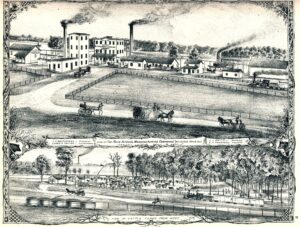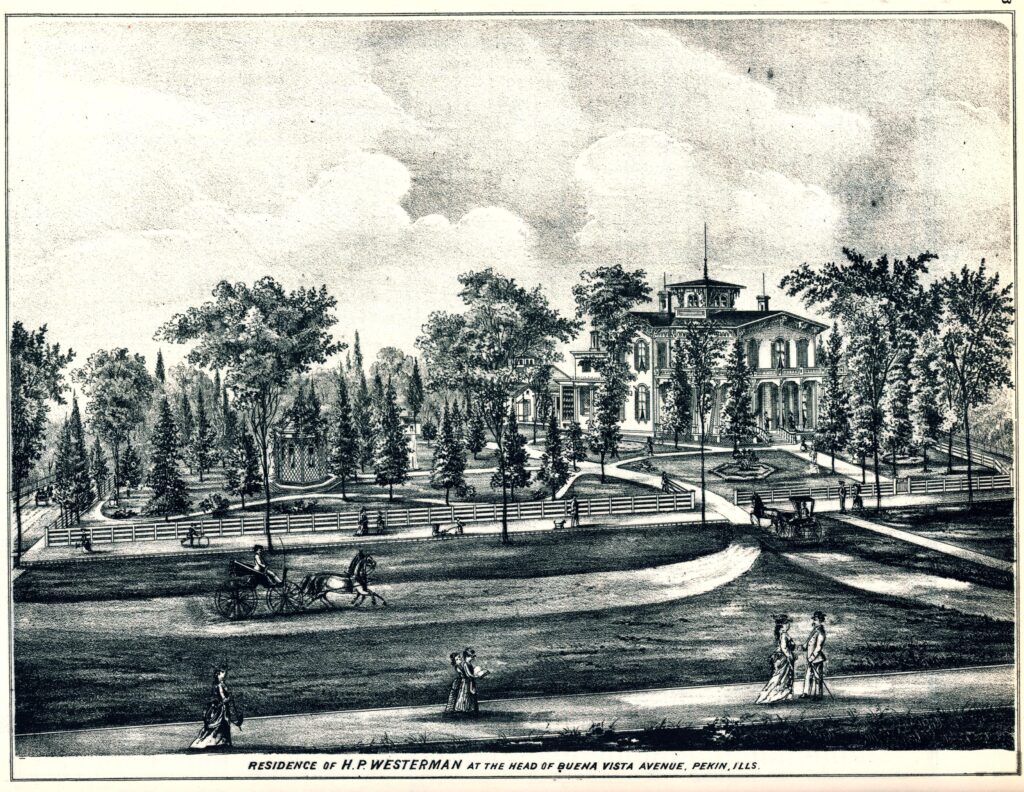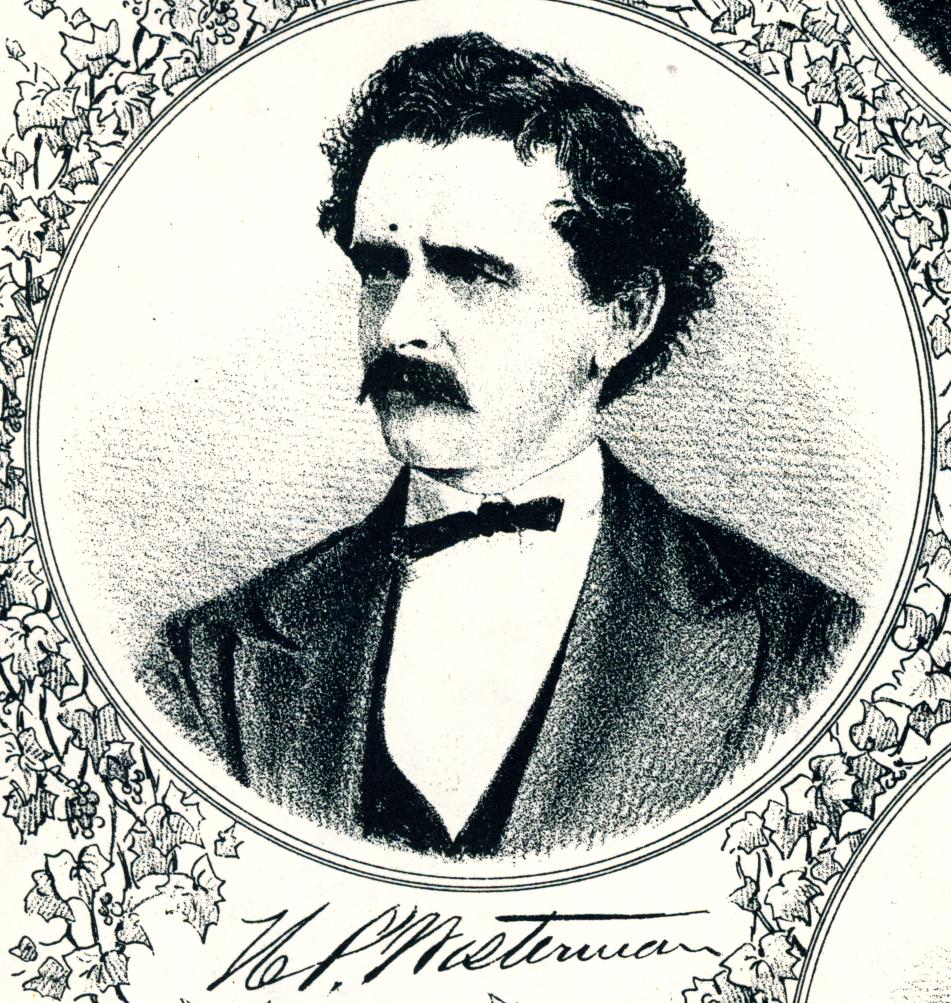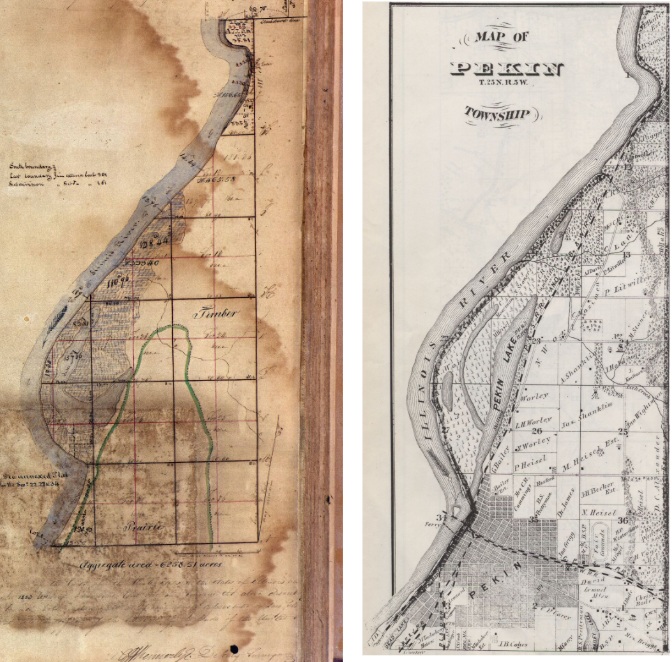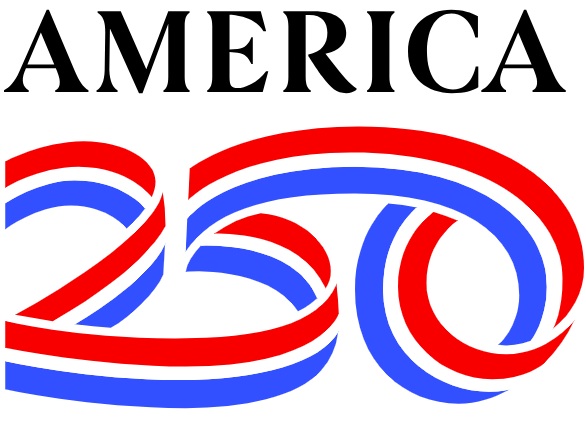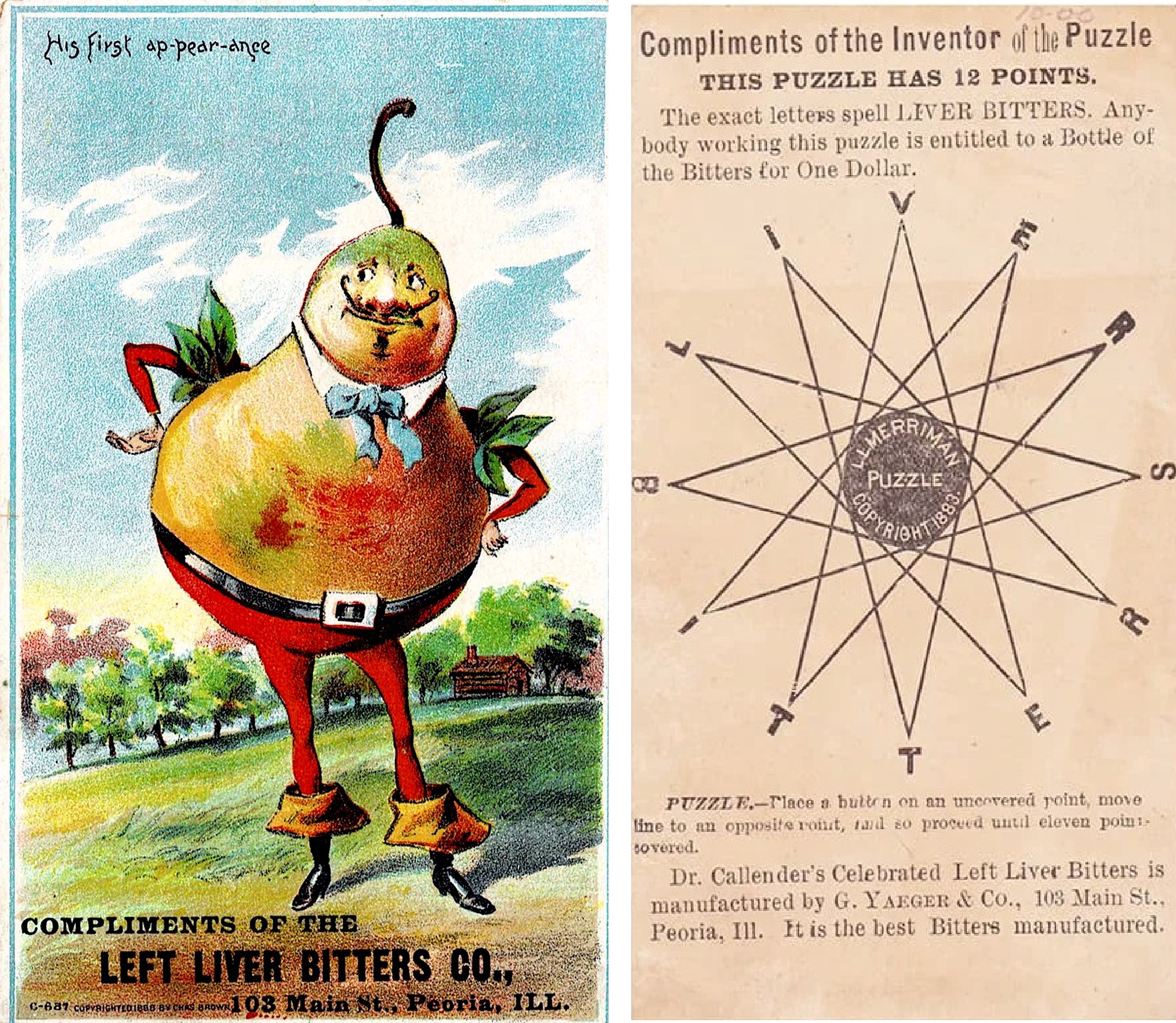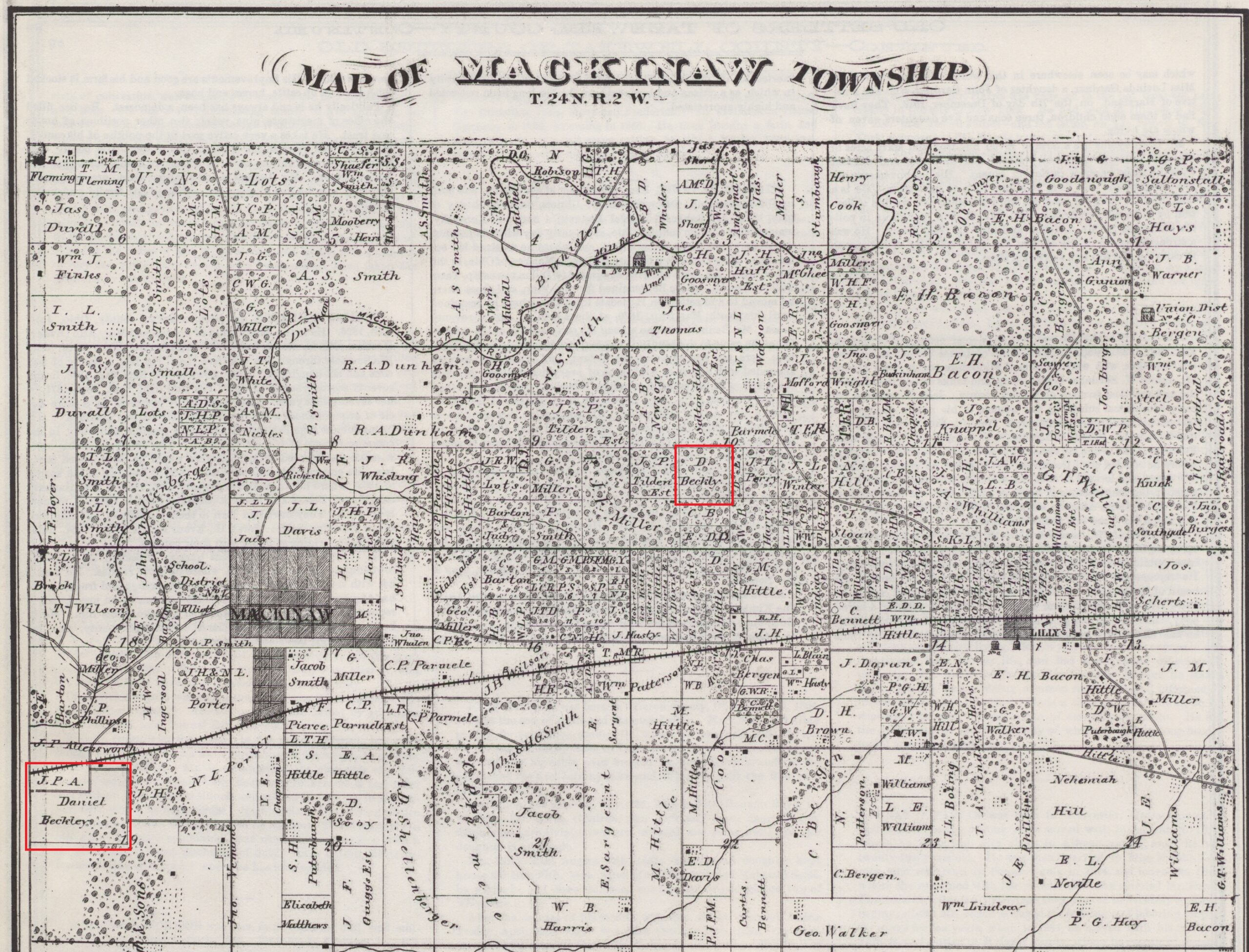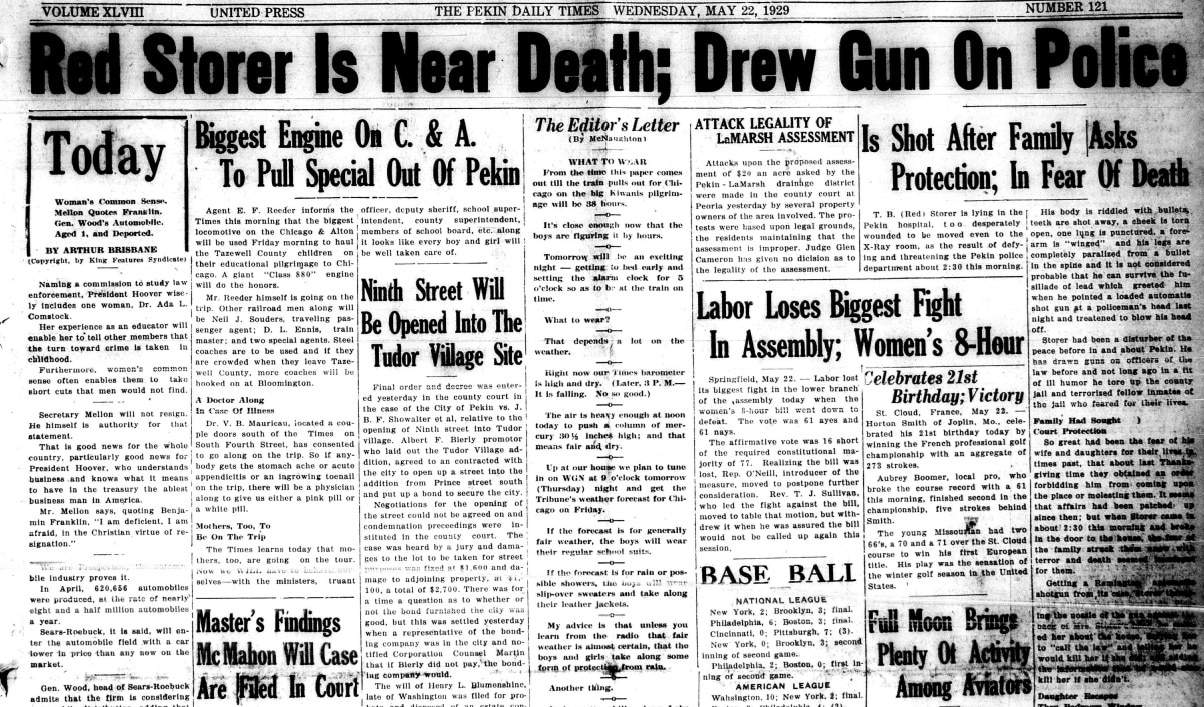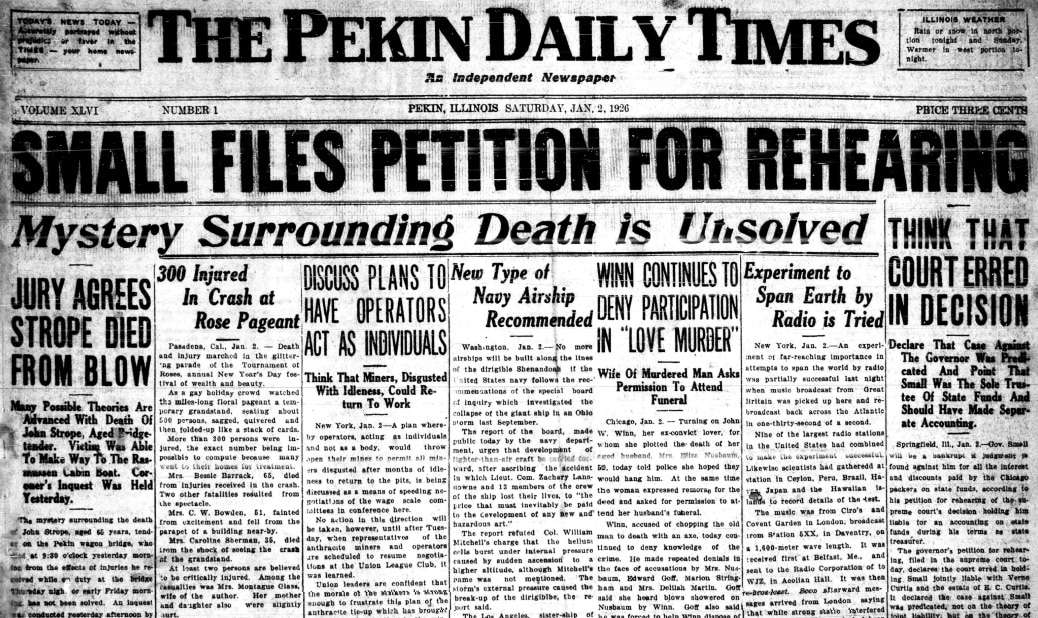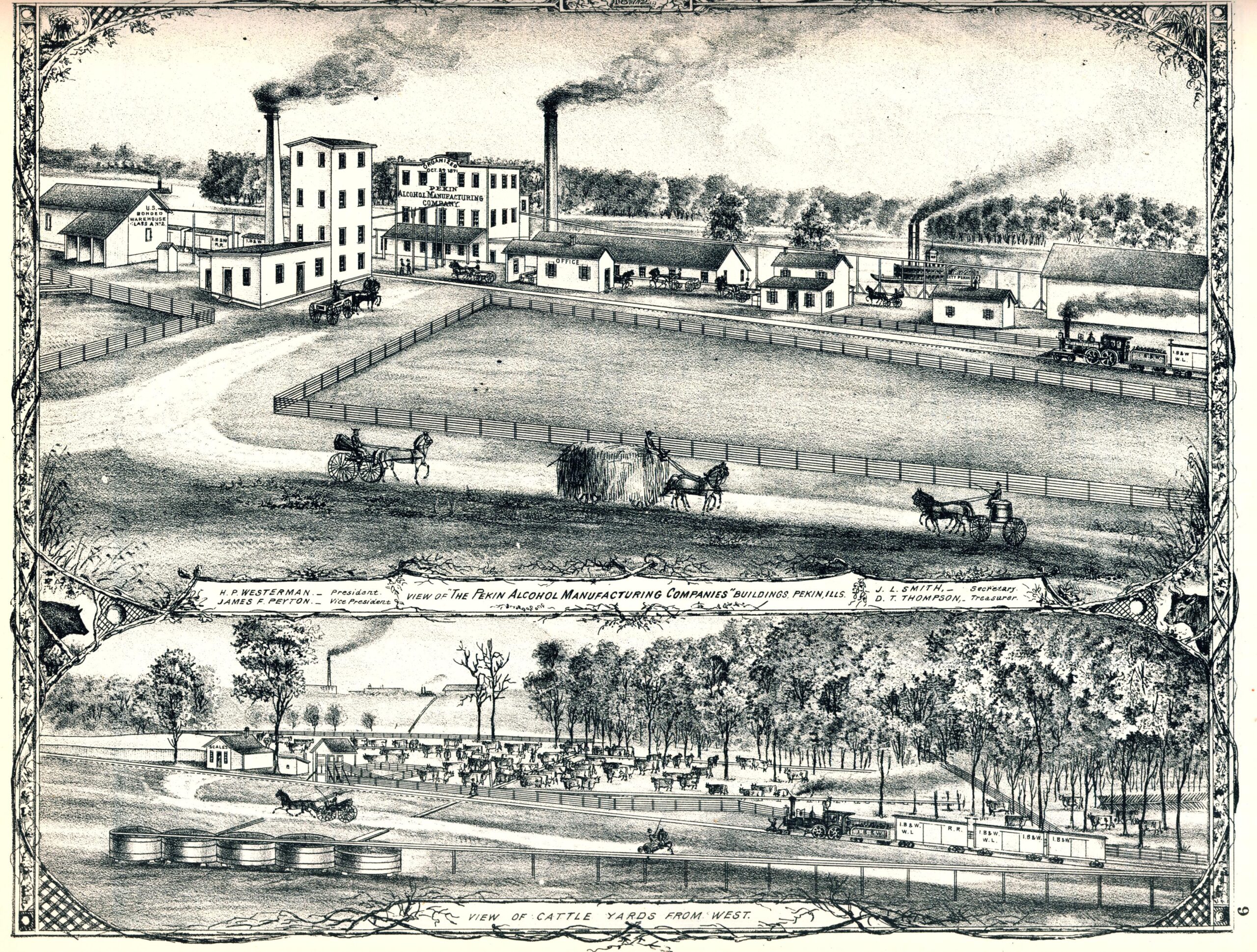The November 2015 issue of the Tazewell County Genealogical & Historical Society Monthly, page 1466, includes an excerpt and a reprint from two vintage newspapers that tell of Pekin alcohol distillery owner Henry P. Westerman (1836-1922). It’s not really the kind of news about one’s self that one likes to see in the newspaper.
The excerpt, headlined “H. P. Westerman in the Toils,” comes from the Delavan Times of Dec. 11, 1875. It reads as follows:
“The Pantagraph is responsible for the statement that a warrant was issued out of the United States District Court Saturday for the arrest of Henry P. Westerman, of the Pekin Alcohol Company. It is charged that there were frauds perpetrated by the Pekin Alcohol Manufacturing Company up to last January, when the name of the company was changed to the Pekin Alcohol Company. It is for refusing to produce the books of the old company showing the transactions during the time of the crooked work, that he is to be arrested. The penalty is from $500 to $5,000, and six months to ten years imprisonment.”
The significance of that piece of news is explained by a previous From the Local History Room column, “Pekin was encircled by the Whiskey Ring,” published in the April 7, 2012 Pekin Daily Times. The federal warrant issued for Westerman’s arrest was a part of U.S. Treasury Secretary Benjamin Bristow’s efforts to put a stop to a widespread conspiracy to evade the federal whiskey tax. The 1949 Pekin Centenary describes the Whiskey Ring’s activities in Pekin, which included “emptying the vast city cisterns built for fire protection here in Pekin, and filling them with highly inflammable bootleg whiskey instead of water.”
The Pekin Centenary continues, “Liquor was also cached in corn shocks, and kegs were sealed and sunk in the Illinois river, here and at Peoria and other locations.”
The Centenary’s account of the Whiskey Ring does not name any of the Pekin conspirators, but we know Westerman was involved, because, as the TCGHS Monthly’s reprint of an editorial column from the Nov. 3, 1881 Washington Republican informs us, Westerman was “the old head of the Pekin whiskey ring.”
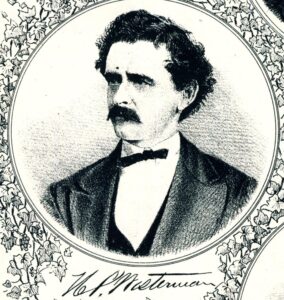
Ben C. Allensworth’s 1905 “History of Tazewell County, Illinois,” page 1083, mentions that John L. Smith (who served as Pekin mayor in 1885 and 1886) sold his distillery to Westerman, which may be how Westerman first got into the distilling business. Westerman’s Pekin Daily Times obituary also mentions that he “was an early resident of this city and for many years was prominent in its affairs. He at one time conducted the old Crown distillery here and was actively engaged in business here for many years.”
Allensworth’s history, page 905, says Westerman was elected Fourth Ward alderman for Pekin in 1861, but he resigned the same year. He later moved to San Francisco, Calif., where he died, his body being brought back to Pekin and buried in Oak Grove Cemetery (now Lakeside Cemetery). As an aside, Oak Grove Cemetery began as Temperance Cemetery, founded by the Pekin Sons of Temperance, so the burial of an old Pekin distiller there makes for something of a humorous irony.
Charles C. Chapman’s 1879 “History of Tazewell County, Illinois,” page 611, includes this short biographical notice of Westerman:
“H. P. Westerman was born, Aug. 25, 1836, in St. Louis, Mo., and is the son of Conrad and Margaretha (Lang) Westerman. His father and his family came to Pekin in 1846, and old Father Westerman died here in 1873. H. P. attended the common schools of Pekin, and then entered Bell’s Commercial College, from where he graduated. In 1848 he embarked in the dry goods business as clerk, and from that time his active business career began. He was united in marriage with Mary L. Gregg, Oct. 13, 1856. Three children were born to them, two of whom are living.”
In fact, Westerman is known to have had four children: a son, Don Heaton Westerman, who died when only 9 months old in August 1866, and three daughters, May Leslie Westerman, who died at age 9 also in August 1866, Alice Breimar Westerman Chain, and Susan Leslie Westerman Brown.
Though Chapman devoted only a single paragraph to Westerman himself, Chapman continued with two pages of a biography – more of a panegyric, perhaps – of Westerman’s wife Mary, who served locally in the Soldiers Aid Society during the Civil War for four years, two as president and two as secretary. Chapman tells of dissension in the Society over how best to spend their donations, which led some local newspapers to denounce Mary Westerman unjustly, accusing her of “striking hands with the Copperheads.” (She was a Democrat, and many Democrats in Pekin during the Civil War were Copperheads, that is, they had Confederate sympathies.)
Besides Chapman’s information, the 1873 “Atlas Map of Tazewell County,” page 38, features a lengthy biography of H. P. Westerman and his wife Mary, while engravings of their mansion and of Henry’s distillery are found on pages 8-9. Mary Westerman is also important to the history of the Pekin Public Library due to her prominent role in the founding and promotion of the Ladies Library Association, forerunner to the public library.
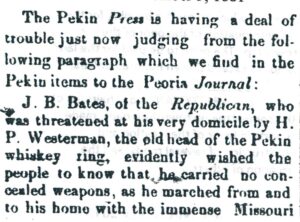
Given the number of newspaper articles over the years that showed Henry Westerman in a negative light, it’s perhaps understandable that he wouldn’t be on the friendliest of terms with the local press. It’s in that context that the first paragraph of the Washington Republican’s above quoted editorial column of Nov. 3, 1881, may be understood. The Republican editor’s column reprinted a couple items from a recent issue of the Peoria Journal, in which the Journal (and the Washington Republican) enjoyed some jokes at the expense of their Pekin newspaper rivals:
“J. B. Bates, of the Republican, who was threatened at his very domicile by H. P. Westerman, the old head of the Pekin whiskey ring, evidently wished the people to know that he carried no concealed weapons, as he marched from and to his home with the immense Missouri bush-whacker’s rifle over his shoulder. Armed with such a murderous-looking weapon, we are rejoiced to know that he will hereafter walk in the paths of peace.”
The Journal mixed up the initials of the editor of the Tazewell Republican – he was W. H. Bates, while J. B. Irwin was then editor of the Pekin Daily Times. In any case, the Washington Republican’s editorial writer remarked, “Nor is Bates the only Pekin editor who is fearful of being blown into kingdom come. Hoffman, also, sees danger ahead and while he has no fears of the hereafter he don’t propose to take passage across the rolling Jordan until he gets a good ready, and woe be unto him who tackles the Dutchman. See what the same [Peoria Journal] writer says of Jack:
“Jack Hoffman of the Freie Presse, with blood in his eye, and his ears flopping, marched boldly down Court street with a shot gun over his shoulder a la Bates. All the editors here appear to be on the war path. Peace! peace, brethern (sic), let not your angry passions rise, for we think too much of you all, to have even one of you pass out of the world in a hurry, besides you would be missing heaps of fun up here on earth.”
The Washington Republican’s editorial writer then added, using colorful language that would likely result in a libel suit today, “Bates and Hoffman are not alone in this, for Irwin has been in hot water ever since he went to Pekin, and has had more trouble with his neighbors than all the others put together. He fears neither God, hell nor the devil, and, in fact, the nearer he gets to the latter the more he feels at home. The old man will reach for him though some of these days, and then heaven pity the unfortunate imps who must endure his company throughout eternity.”
